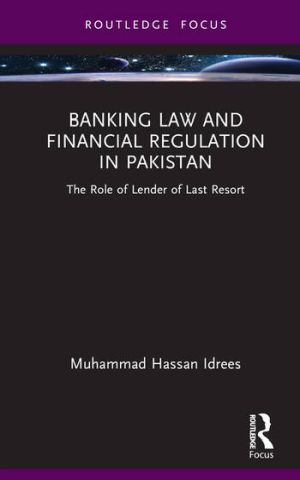
This book offers an analysis of the contemporary significance of the practice of Lender of Last Resort (LOLR) in Pakistan. Aiming to identify deficiencies in current financial system legislation, the book details the role of LOLR and its essential presence in establishing a resilient banking and financial system.
Beginning with an assessment of the emergence of Central Banks as domestic financial regulators, this volume draws from the principles of Walter Bagehot and Henry Thornton for LOLR rescue operations. Examining the International Monetary Fund's (IMF) role as an international lender of last resort and scrutinising its rescue efforts, the book uses case studies of the Central Banks in the United Kingdom and the United States to suggest reforms for Pakistan's system. It explores the causes of financial crises and evaluates the factors that have made LOLR an integral part of Central Banks responsibilities. It compares LOLR operations in the cases of AIG and Lehman Brothers in the United States and Northern Rock in the United Kingdom, comparing these to cases in Pakistan to pinpoint key gaps in the State Bank of Pakistan's LOLR operations. Furthermore, it discusses the Basel Accord I, II, and III: the key international regulations for the banking sector.
The book will be of interest to scholars and students in the field of financial and banking law.